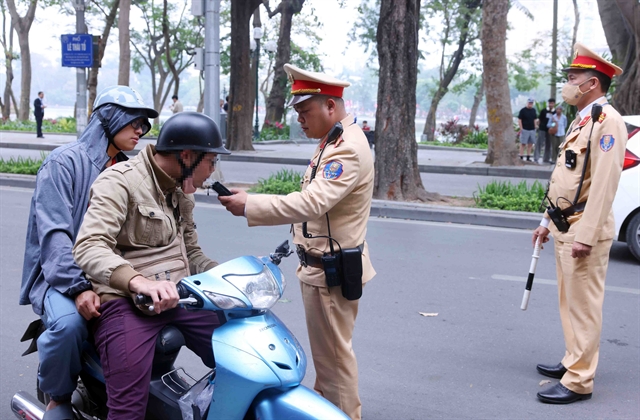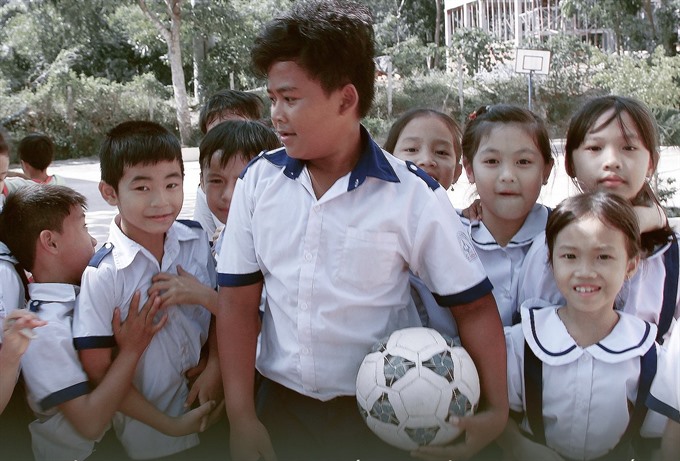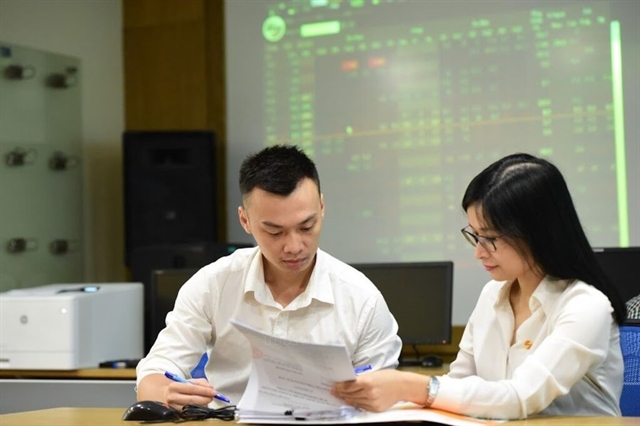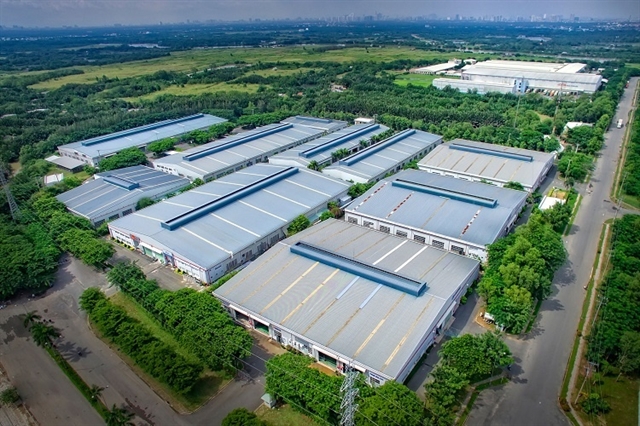 Society
Society

Danh Khang is studying the third grade at a primary school in Phú Quốc island district of southern Kiên Giang Province although he is 14 years old.
 |
| Danh Khang (middle)is studying the third grade although he is 14 years old. — Photo tuoitre.vn |
Duy Khánh
KIÊN GIANG — Danh Khang is studying in the third grade at a primary school in Phú Quốc island district of southern Kiên Giang Province although he is 14 years old.
He moved to Phú Quốc with his parents, who came here to work, four years ago.
Without stable jobs, his parents had to leave their hometown in the Mekong Delta province of Bạc Liêu for different localities to earn a living. Before coming to this island district, they had worked seasonally in southern Đồng Nai and Bình Dương provinces and HCM City.
Moving to different localities together with financial difficulties made it difficult for Khang to continue his education. He was forced to drop out of school many times.
Danh Bình, Khang’s father, told Tuổi Trẻ (Youth) newspaper his family had to keep moving to different areas to seek jobs so none of his children could go to school.
“We were told there were many job opportunities in Phú Quốc so we decided to move here four years ago. We built a small makeshift house near An Thới waste dumping station to live,” he said.
Now his father is working as a temporary construction worker while his mother picks up rubbish at the dump that can be recycled to sell for money.
Asked whether Khang felt embarrassed to study together with other students who are younger than him, he said: “At first, I felt quite embarrassed, but then I gradually found it fun and happy to learn how to read and write.”
“I will try to study to finish the fifth grade and then I will quit and find a job,” he told the newspaper.
Khang is just one of many migrant children in Phú Quốc whose ages do not fit their grades at schools. As the demand for unskilled workers in Phú Quốc District keeps increasing in recent years, thousands of farmers, together with their families, from surrounding localities came here to seek jobs.
Danh Thị Trúc Nhi, also 14, is studying the third grade at An Thới 2 Primary School with Khang.
She could not go to schools for many years because her parents kept moving to different areas to work. They came to Phú Quốc five years ago to work. Now her parents have found stable jobs and decided to stay in the island so Nhi can go to school.
“I will turn 16 when I finish the fifth grade. After that, I will find a job to work to support my parents. I will feel ashamed if I continue studying when I am much older than other students,” she said.
Teacher Lê Thị Thu Vân said most of pupils at the school were children of migrant workers so they often had to go to school at older age.
“Many students started to study the first grade at the age of 12,” she said.
“Zero” kids
Hundreds of children of migrated workers in Phú Quốc are considered as “zero” kids as they do not have many things, such as they have no birth certificates, no household residency books, no education, no full names and no birthday celebrations as they do not remember their exact date of birth.
Migrating with parents from different localities to the island district, these children have to live in makeshift houses and have fewer opportunities to get access to education.
Danh Hoàng, a migrant construction worker, said he could not remember exactly the ages of his four kids as all of his children.
“I lost all documents relating to their birth while I and my wife are illiterate so we could not come back to our home town to register birth certificates for my kids,” he said.
“Also, it takes me even the whole week to come back to the hometown. Meanwhile, it is difficult for me to have a day off as my family will have nothing to eat if I do not work even a single day,” he said.
As many migrant workers have to try hard to earn a living, they forget their children need to go to school.
Principal of Cửa Cạn Primary and Secondary School, Nguyễn Anh Khoa, said the school had admitted 150 new students during the 2018-19 academic year, most of them are children of migrant workers. Among them, 50 students go to school later than the standard ages of between 2-4 years.
Director of Education and Training Bureau of Phú Quốc District, Đống Thành Đạt, said the local authorities had tried to create opportunities for all children of migrant workers although they do not have household registration books as required. — VNS




